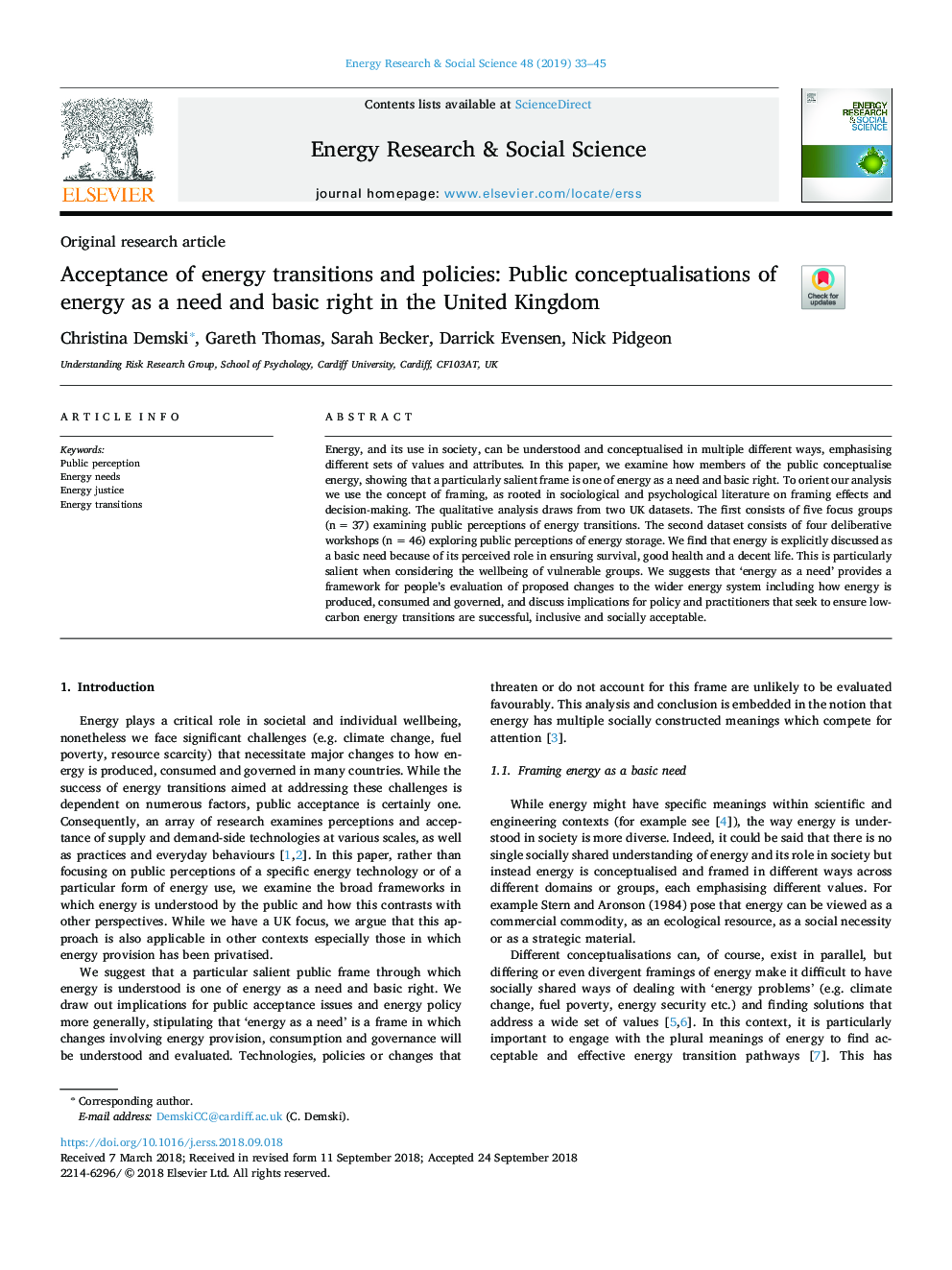| Article ID | Journal | Published Year | Pages | File Type |
|---|---|---|---|---|
| 11012772 | Energy Research & Social Science | 2019 | 13 Pages |
Abstract
Energy, and its use in society, can be understood and conceptualised in multiple different ways, emphasising different sets of values and attributes. In this paper, we examine how members of the public conceptualise energy, showing that a particularly salient frame is one of energy as a need and basic right. To orient our analysis we use the concept of framing, as rooted in sociological and psychological literature on framing effects and decision-making. The qualitative analysis draws from two UK datasets. The first consists of five focus groups (nâ=â37) examining public perceptions of energy transitions. The second dataset consists of four deliberative workshops (nâ=â46) exploring public perceptions of energy storage. We find that energy is explicitly discussed as a basic need because of its perceived role in ensuring survival, good health and a decent life. This is particularly salient when considering the wellbeing of vulnerable groups. We suggests that 'energy as a need' provides a framework for people's evaluation of proposed changes to the wider energy system including how energy is produced, consumed and governed, and discuss implications for policy and practitioners that seek to ensure low-carbon energy transitions are successful, inclusive and socially acceptable.
Related Topics
Physical Sciences and Engineering
Energy
Energy (General)
Authors
Christina Demski, Gareth Thomas, Sarah Becker, Darrick Evensen, Nick Pidgeon,
